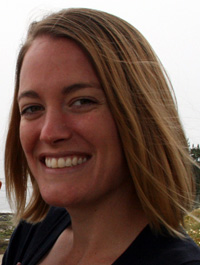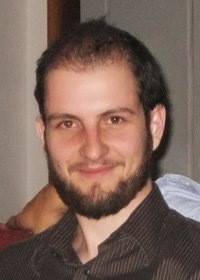Eight UC Santa Cruz graduate students have received scholarships worth a total of $80,000 from the Achievement Rewards for College Scientists (ARCS) Foundation for the 2012-13 academic year.
This year's ARCS scholars will be recognized at the annual ARCS Foundation luncheon in San Francisco on Monday, November 5. The keynote speaker will be R. Sanders Williams, M.D., president of the Gladstone Institutes.
The ARCS Foundation, founded in 1958, is a national organization that provides scholarships and fellowships for the country's most promising science, medical, and engineering students. This year's ARCS scholars at UCSC represent the Science Communication Program and the Departments of Astronomy and Astrophysics; Earth and Planetary Sciences; Ecology and Evolutionary Biology; Ocean Sciences; and Physics. The scholars and their interests are as follows:
Elizabeth Crook is pursuing a Ph.D. in Earth and planetary sciences. She is studying the effects of ocean acidification on coral reef ecosystems.
Elizabeth Devitt, a graduate student in the Science Communication Program, has worked as a veterinarian for two decades. Now, she hopes to have more global impact as a journalist covering the growing conflicts among animals, man, and the environment.
Heather Ford is pursuing a Ph.D. in ocean sciences. She is investigating periods of past warm climate as an analogue for future climate change.
James Guillochon is pursuing a Ph.D. in astronomy and astrophysics, focusing on strong tides in astrophysical systems, including the disruption of stars by supermassive black holes and the formation of exoplanetary systems.
Timothy Linden is a fourth-year graduate student in physics who is engaged in the search for dark matter using gamma-ray and radio observations.
Anne Medling is pursuing a Ph.D. in astronomy and astrophysics. Her research involves the study of nearby merging gas-rich galaxies and their central starbursts and black holes.
Paul Gabrielsen is a graduate student in the Science Communication Program. With degrees in geology and hydrology, he wants to make science accessible and informative to the people whose lives it impacts most.
Norah Saarman, a Ph.D. candidate in ecology and evolutionary biology, is dedicated to teaching and research in areas informative to conservation. She is studying mussel species in San Francisco Bay.





